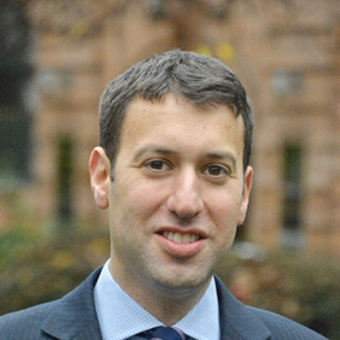Nicholas Fear – manager at BCL Legal – comments on the trends driving the legal recruitment market across the Midlands
Like most parts of the economy, recruitment within the legal sector has had its ups and downs over the past few years; the Midlands has most certainly seen its fair share of turbulence.
On a general note we have seen live vacancies increase year on year, more detail later. This upward trajectory is encouraging - especially as the demand for candidates is coming from firms of all sizes; from the national players and large volume specialists to long established high street practices. However, it’s important to note that the picture is varied which, in turn, means the availability and the quality of job opportunities will squarely depend on the individual discipline.
Property
In terms of said disciplines, just over half of the roles that we are now working on are property focused. 2015 has also seen a steady flow of corporate, banking, commercial and litigation (insurance, property, construction roles.
The number of residential conveyancing vacancies on the high street has continued to grow at an alarming rate since the start of 2014. There seems to be no sign of the market cooling although debate remains about whether another ‘bubble’ is looming. Only time will tell.
In terms of the types of candidates most sought, both the large volume conveyancing businesses and the more traditional small to medium sized firms are looking to recruit people with at least six months’ conveyancing experience; whilst more experienced lawyers are needed by the traditional law firms. One of the larger conveyancers, which has traditionally offered trainee conveyancer roles to LPC graduates, has now started to offer training contracts in an effort to secure talent. Conveyancers with plot sales experience are also in high demand as a result of the new housing developments that are springing up all over the Midlands.
The commercial property boom continues unabated and we continue to see commercial property vacancies at both the larger national firms in the main legal centres as well as at the ‘out of town’, small to medium sized commercial practices. Much of this work is development (commercial and residential) driven and is supported by increased numbers of vacancies in construction.
Whilst one only has to look around Birmingham to see the high levels of property development occurring locally, it should also be remembered that many of the larger firms are able to compete competitively for work with a London and international flavour by committing to undertake it in Birmingham.
The growth in work in the Midlands shows no signs of slowing any time soon……..
Commercial
2015 is the year when corporate work returned with a vengeance but interestingly we are seeing as many banking, asset and project finance roles as there are general corporate vacancies. This points to a more general trend of money being lent and businesses seeking opportunities to grow. Pure restructuring and insolvency positions are largely non-existent.
There have been interesting new entrants to the Midlands market with KPMG and PWC in particular bolstering their teams with high profiles corporate solicitor hires. Whilst moves by some FS organisations to locate more of their activity in Birmingham is offering interesting new work streams but also attracting skilled lawyers out of private practice and into in-house roles.
The commercial roles that we are working on are mostly IT and technology focused. There is also a moderate demand for solicitors with projects and PPP/PFI experience. Despite some high profile and much publicised casualties, many PPP/PFI projects have been undertaken successfully post recession. In many cases solicitors are being asked to create increasingly inventive schemes and ways of funding projects.
These trends are, I believe, a direct result of an economy with more financial confidence.
Litigation
Litigation roles are still very prevalent but not so much general commercial contract litigation. More so, they are focused towards, property, construction, professional and clinical negligence as well as personal injury. The increase in property and construction litigation roles is as a direct result of the greater amount of non-contentious work occurring in related areas.
It goes without saying that the PI market has changed hugely post-Jackson. The claimant injury market has shrunk massively as a result of the ban on referral fees which has caused a shake-up. The end result is fewer firms now offering PI services.
The defendant injury market has, however, remained fairly steady. Those firms that act for insurers have seen the dynamics of their work change as they are now dealing with far fewer lower value motor litigation cases. This is again due to Jackson as well as more robust case management practices that have encouraged parties to treat litigation as a last resort. These factors have shifted the emphasis to higher value motor, employers and public liability litigation work; all of which are better for profit levels as they are typically charged on an hourly rate basis as opposed to a fixed fee.
The defendant clinical negligence market is another buoyant area thanks - in a very large part - to the NHS Litigation Authority. The organisation spends millions of pounds per annum on lawyers and it pays out more than £1bn in compensation. The associated panel firms are always looking to recruit new lawyers for their teams as a direct result.
Family & Employment
Family and employment vacancies are bubbling away but they lack the sustained growth of other disciplines at present. Panel membership is still an important requirement of most of the family job descriptions we work on; whilst business development experience is also high on the list of many potential employers across the market. The low level of activity in these areas is widely considered to be down to the high charge out rates for privately funded work. However, child panel membership is still a common requirement in order to get access to highly competitive Legal Aid work.
In terms of employment vacancies, the overwhelming majority are respondent oriented. This trend tells us that claimant work has dropped off massively since the introduction of tribunal fees back in 2013. We often see these roles advertised as part-time as there just aren’t enough full caseloads available to justify costly full-time positions. This might, of course, change over the short to medium term because the new fee structures are being challenged at a Judicial Review.
On a positive note, private client roles are now busier across the board when compared to 2013. We have seen a noticeable increase in demand for Court of Protection experience along with high value tax and trusts expertise.
Key Trends
The present is bright and the future seems brighter right across the Midlands. Massive investment in infrastructure and buildings in both Birmingham and the surrounding area has created a real buzz across the region.
Commercial property in particular remains “candidate short” as few solicitors had the opportunity to qualify into it between 2009 and 2012. The same can be said for corporate, but to a slightly lesser extent. This is a similar trend to what happened in 2005/2006 after the dot.com bubble burst shook confidence in 2000/2001: firms tightened their belts and subsequently trainee numbers fell. The latest recession was obviously a lot deeper but the similarities and the consequences that we are now seeing are the same.
However, as previously stated, we are seeing few employment and family vacancies; whilst criminal jobs are also very scarce. So, whilst the legal recruitment market for many is very ample, if you are an employment, family or criminal solicitor then you are going to struggle. This is in stark contrast to being a commercial or residential property lawyer or a corporate lawyer as they perhaps have too many choices on offer. The number of banking roles has also increased, but given its position as a niche discipline in the regions, it will never be as buoyant as the other disciplines.
In 2012/2013 we saw a 100% increase in vacancies in the Midlands, in 2013/2014 we saw a rise of 500%. 2014/2015 has again seen an increase on the vacancies registered, around roughly 50%. It is great for the jobs market but unfortunately there simply aren’t enough solicitors working in the most popular disciplines who are actively seeking a new position.
These increases, however, do not apply to personal injury and defendant insurance litigation where the number of vacancies remains fairly flat, which is not necessarily a bad thing as supply and demand, is more evenly balanced.
Summary
Law firms, no matter what their size or structure, are under to pressure to both retain and bring in new talent. This will be helped by keeping trainee solicitor levels more constant and considering candidates have come through alternative routes.
Many firms are being increasingly flexible when seeking to fill positions in booming disciplines, which is creating opportunity for people to move into different areas of law and enjoy exciting new challenges.
Recruiting enough people to keep up with growth plans remains the biggest challenge for law firms in the Midlands next year.












